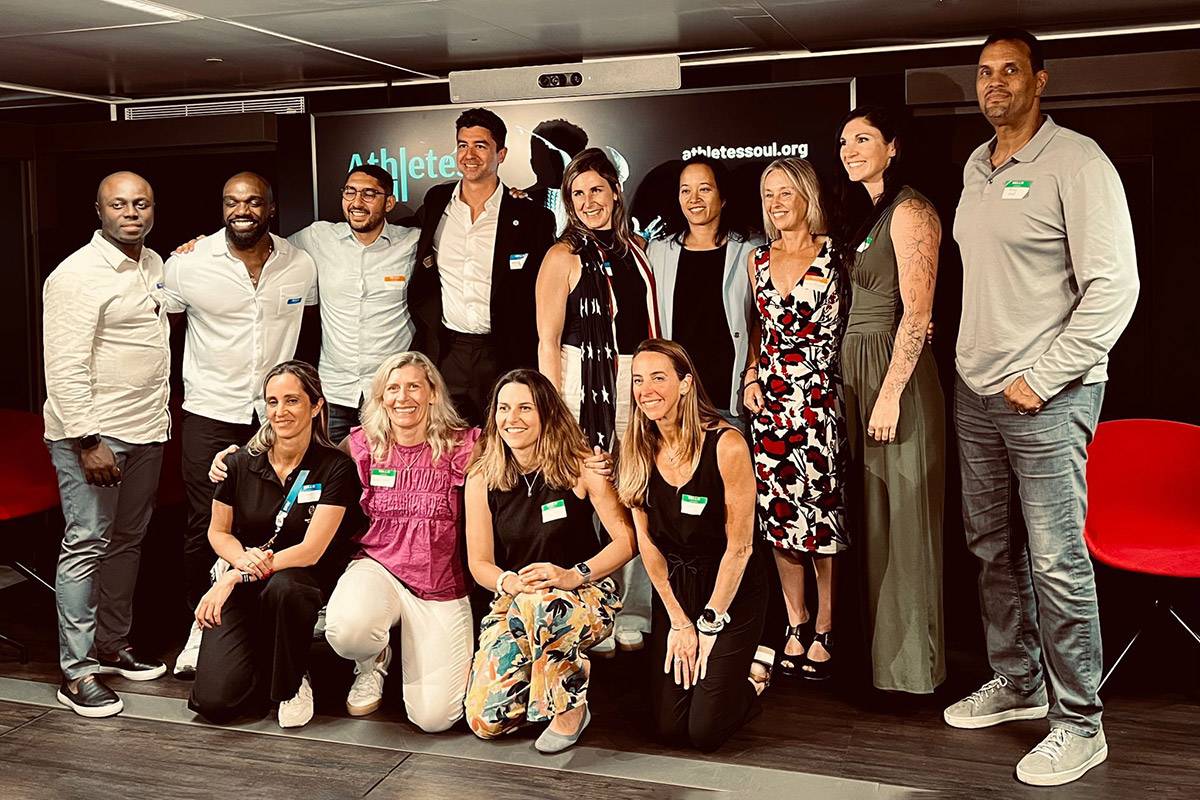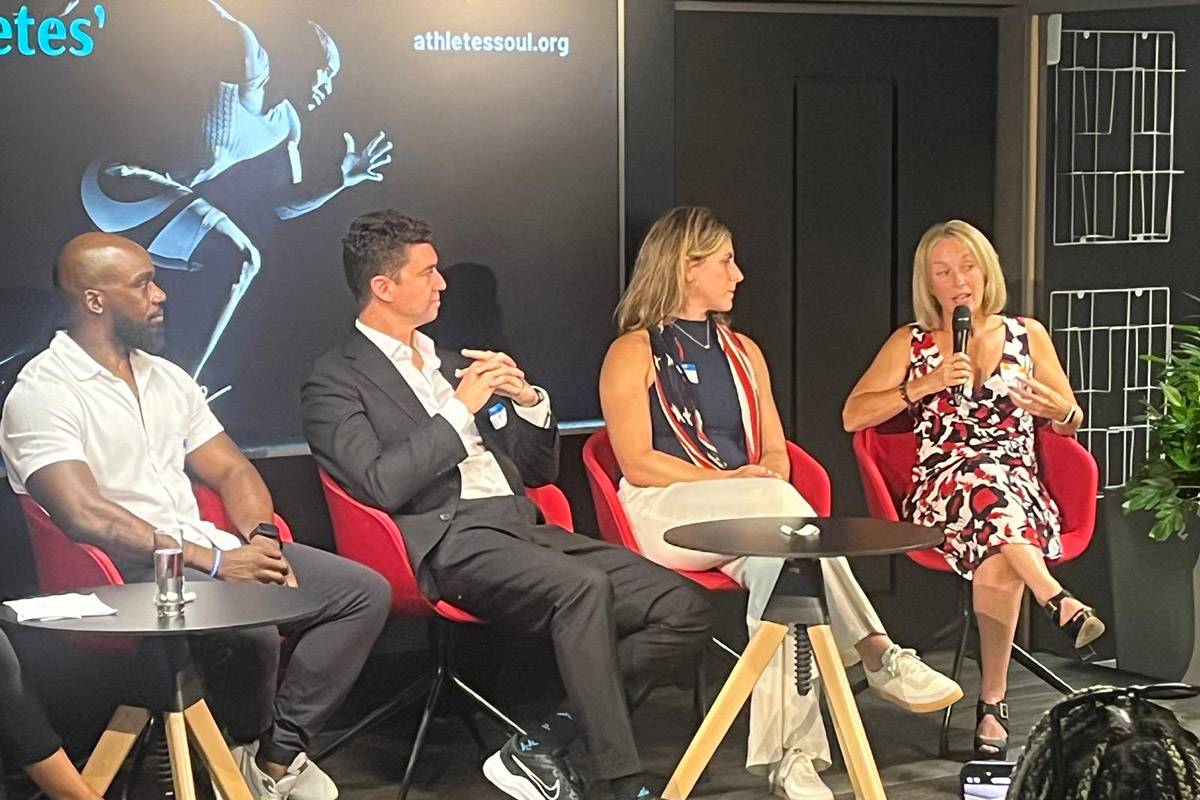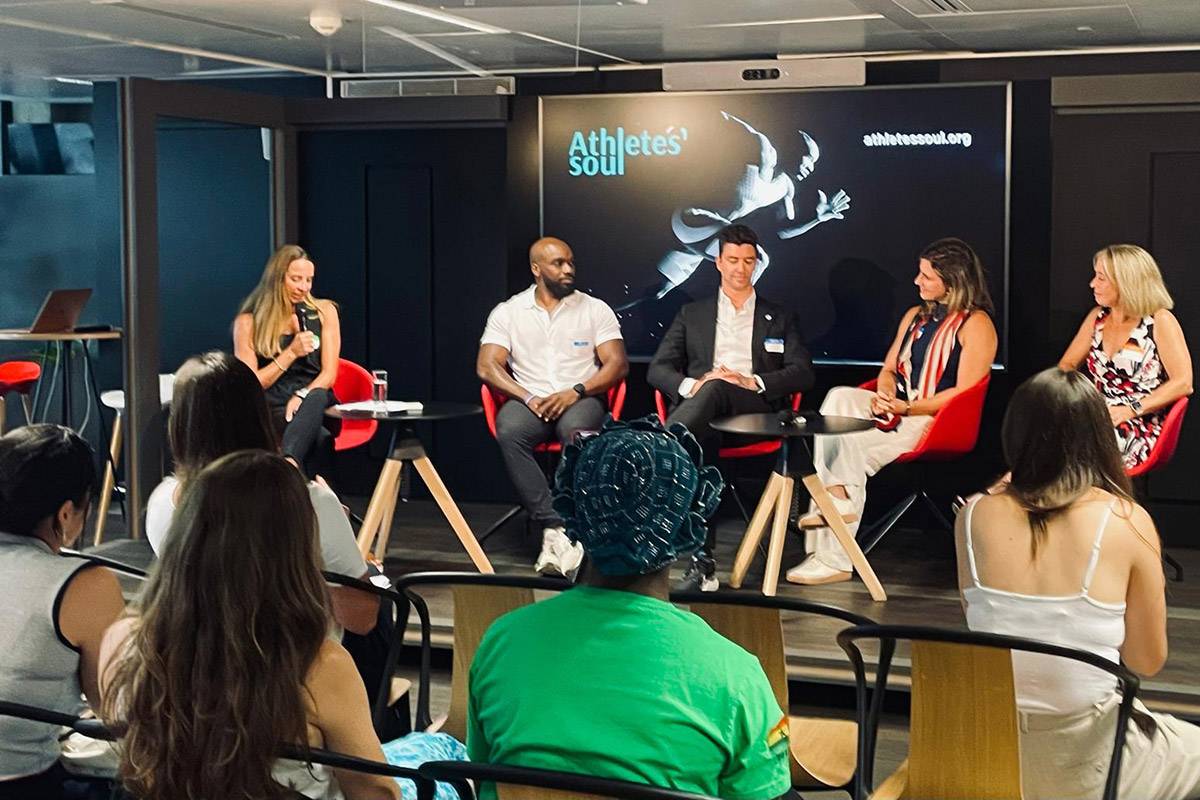Karen is a Senior Lecturer in Sport and Exercise Psychology at Cardiff Metropolitan University. Karen joined
Athletes’ Soul, a nonprofit organisation focused on athletic retirement, to participate in a distinguished panel discussion being held during the Olympic Games in Paris 2024.
I have been to Paris once before, but this time was different. This time, the city was abuzz with the excitement of the Olympic Games. My visit was in a professional capacity having been invited by Athletes’ Soul to an event provided in the second week of the Games for Olympians, their families, and support staff. Athletes’ Soul is a dedicated and professional nonprofit organisation founded and operated by former athletes which provides support for athletes as they transition away from sports. The organisation raises awareness about the challenges of athletic retirement and empowers athletes to develop beyond sports.
In the final days of the Paris Olympic Games, in the shadow of the Bercy Arena – location of the gymnastic events – Athletes’ Soul provided a retreat for competing Olympians and the opportunity for them to take part in two ‘fireside chats’. The first involved a discussion around mental health in retiring Olympians, while the second chat included a discussion about the transferable skills that athletes can apply to business acumen.

As a sport psychology researcher and practitioner with an interest in mental health, specifically, a phenomena known as the ‘post-Olympic blues’, I had the privilege of joining the first fireside chat comprising Olympians
Anthony Ervin (swimming; 4 gold medals, 1 silver; 2000; 2016),
Erin Cafaro (rowing; 2 gold medals; 2008, 2012), and
Mikel Thomas (Athletics; 3-time Olympian; 2008, 2012, 2016). I am intrigued by the stories athletes tell of their experience of adversity, growth, and the depressive experiences many suffer on their return home from the Olympic Games.
Fascinated by the narratives athletes articulate in their autobiographies, my flight from Bristol to Paris involved consuming Olympic swimming champion, Anthony Ervin’s “coming of age” autobiography (his words when we discussed it). As part of the panel, I heard first hand of his experiences; his loss of identity, his 14-year hiatus from swimming, and the uncertainty he felt about what he was going to do with his life after retiring. Mikel Thomas spoke of the challenges he experienced transitioning away from competitive sport, including his loss of identity, purpose, and the support of community.

Each of the panellists talked of the persistent stigma around mental health issues within sport. Informed by my research and that of others, I discussed the necessity of creating a more open and supportive environment for athletes. Finally, we discussed the necessity for coaches, teammates, families, and sports organisations to learn to recognise these challenges and support athletes.
In the meet-and-greet networking event that followed, I was awed by the stories that individuals told of their experiences. Beyond the stories of Olympic gold medal success, I was particularly humbled by members of the
Refugee Olympic Team whose performances streamed onto our screens belied their experiences of trauma and loss.
My trip to Paris was one I will not forget any time soon ...

